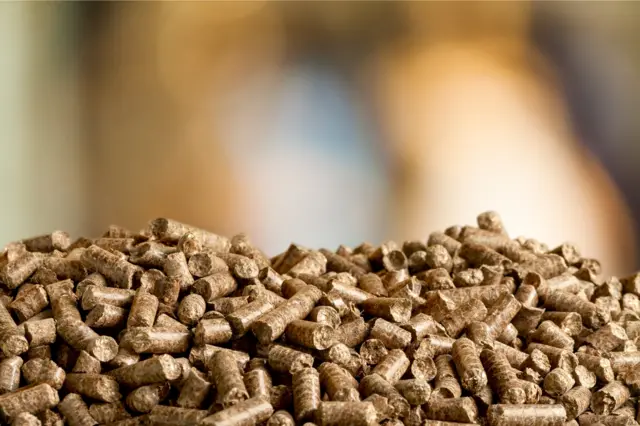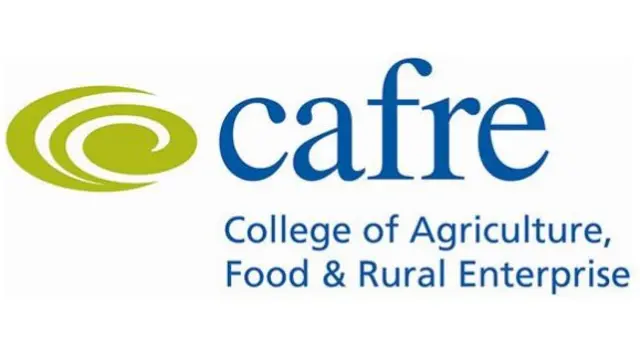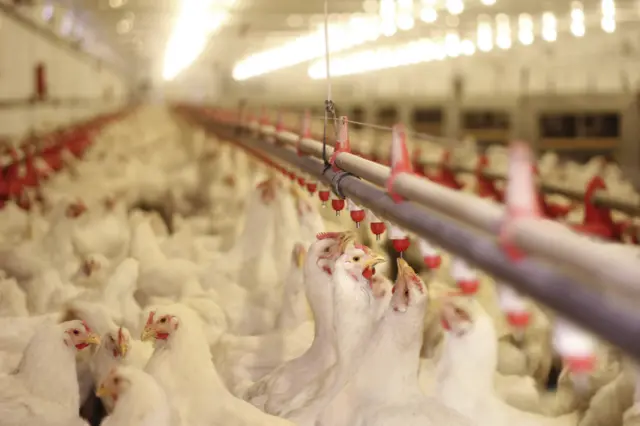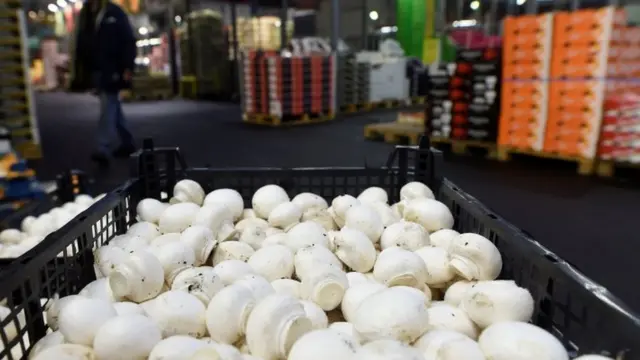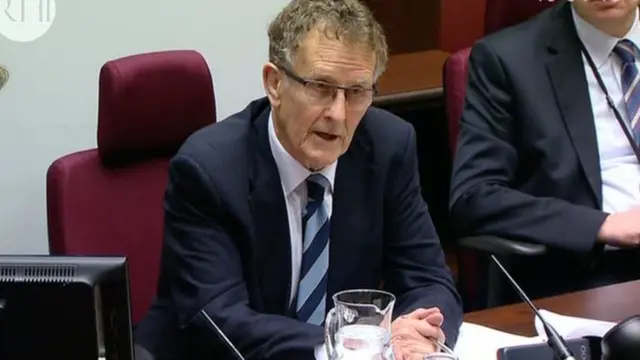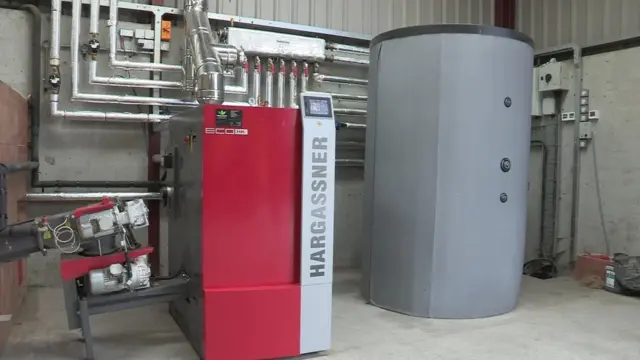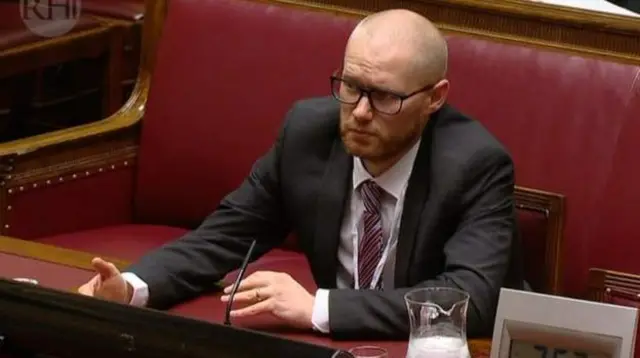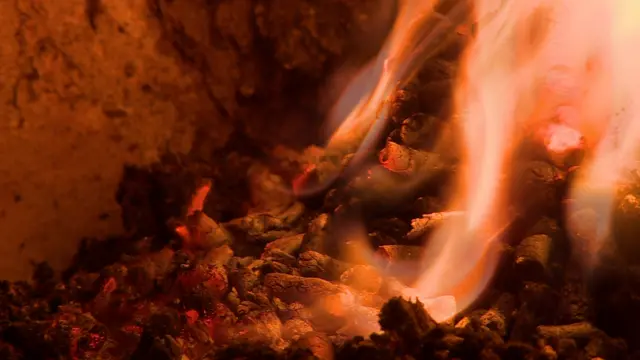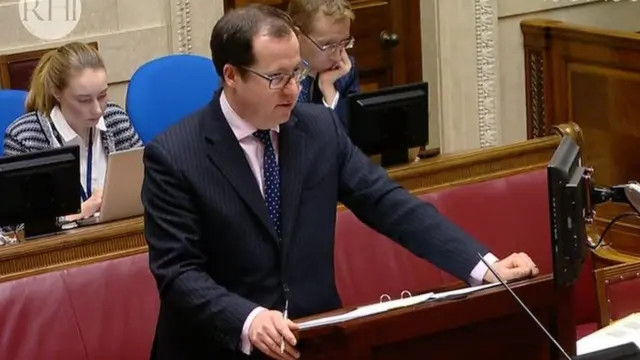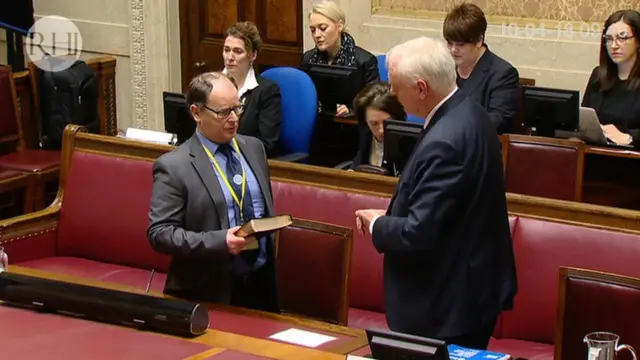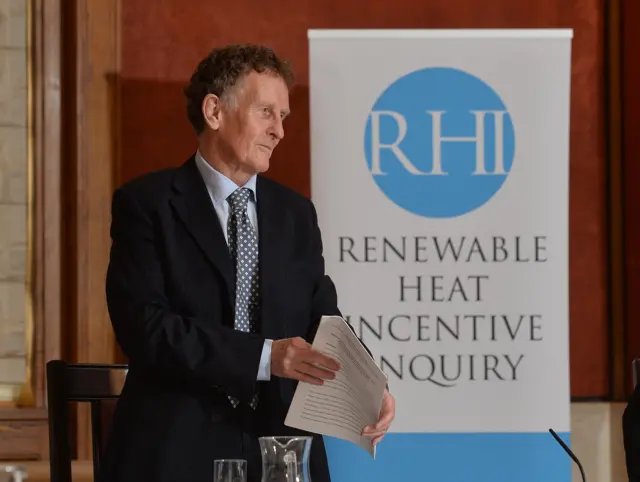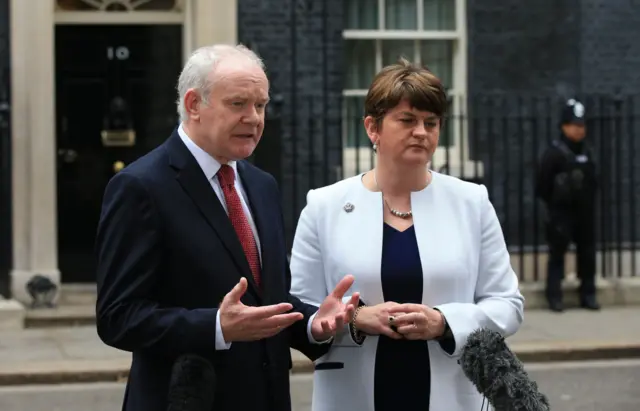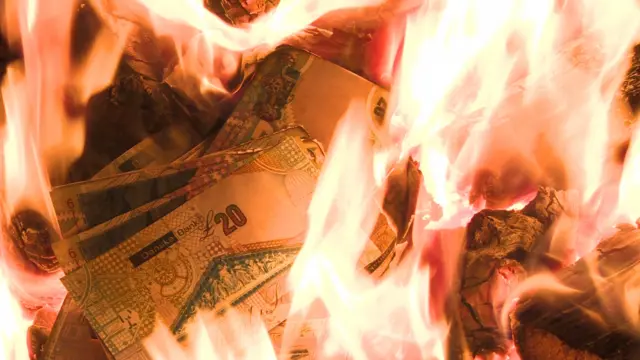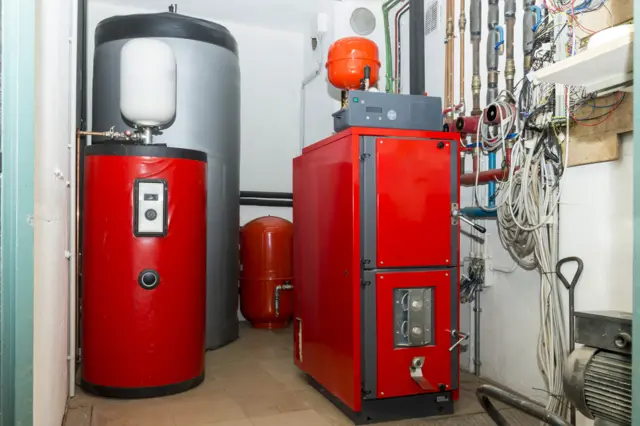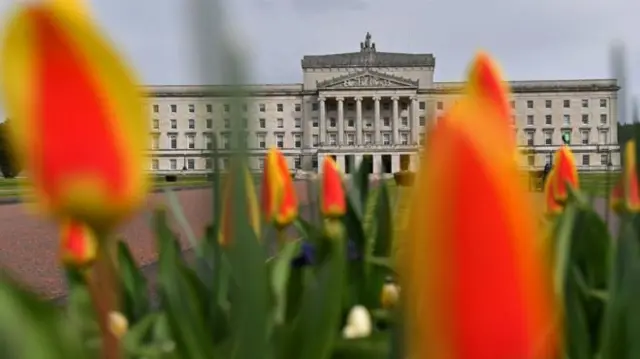'We made no secret of short payback times'published at 12:29 BST 10 April 2018
Mr Ellis gave presentations at DARD events at which the RHI scheme was promoted.
In one presentation he used the example of a particular poultry farm in County Tyrone that had two 99kW biomass boilers and four 60kW boilers installed in June and September of 2013.
Mr Lunny shows a slide used by Mr Ellis that demonstrates the boilers were "on target to generate more than £23,000 in RHI tariff income per annum".
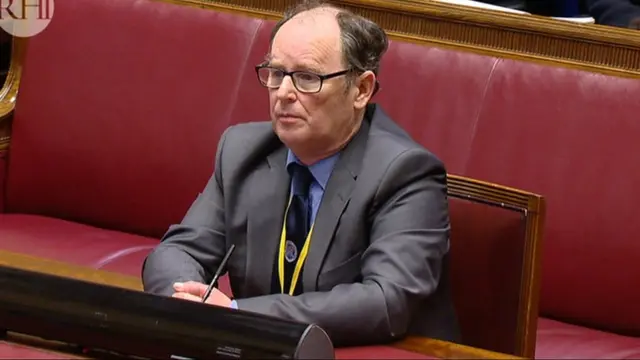 Image source, RHI Inquiry
Image source, RHI InquiryThe time to recoup the cost of the heating system is shown as less than three years.
"You weren't making a secret of what you knew about the very short payback periods?" asks Mr Lunny.
Mr Ellis agrees, saying that DARD felt this farm was a particularly good example of how a participant had learned how to use the scheme most effectively.
